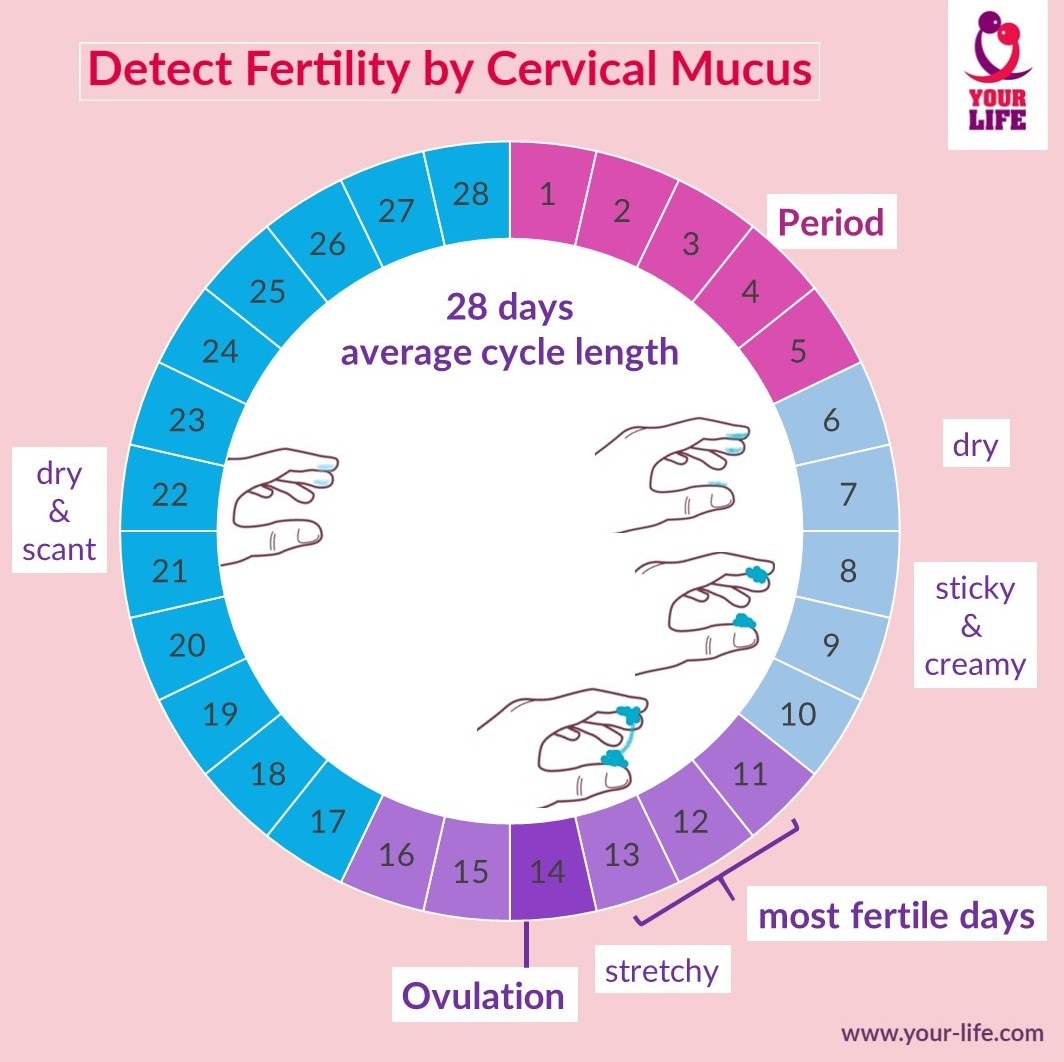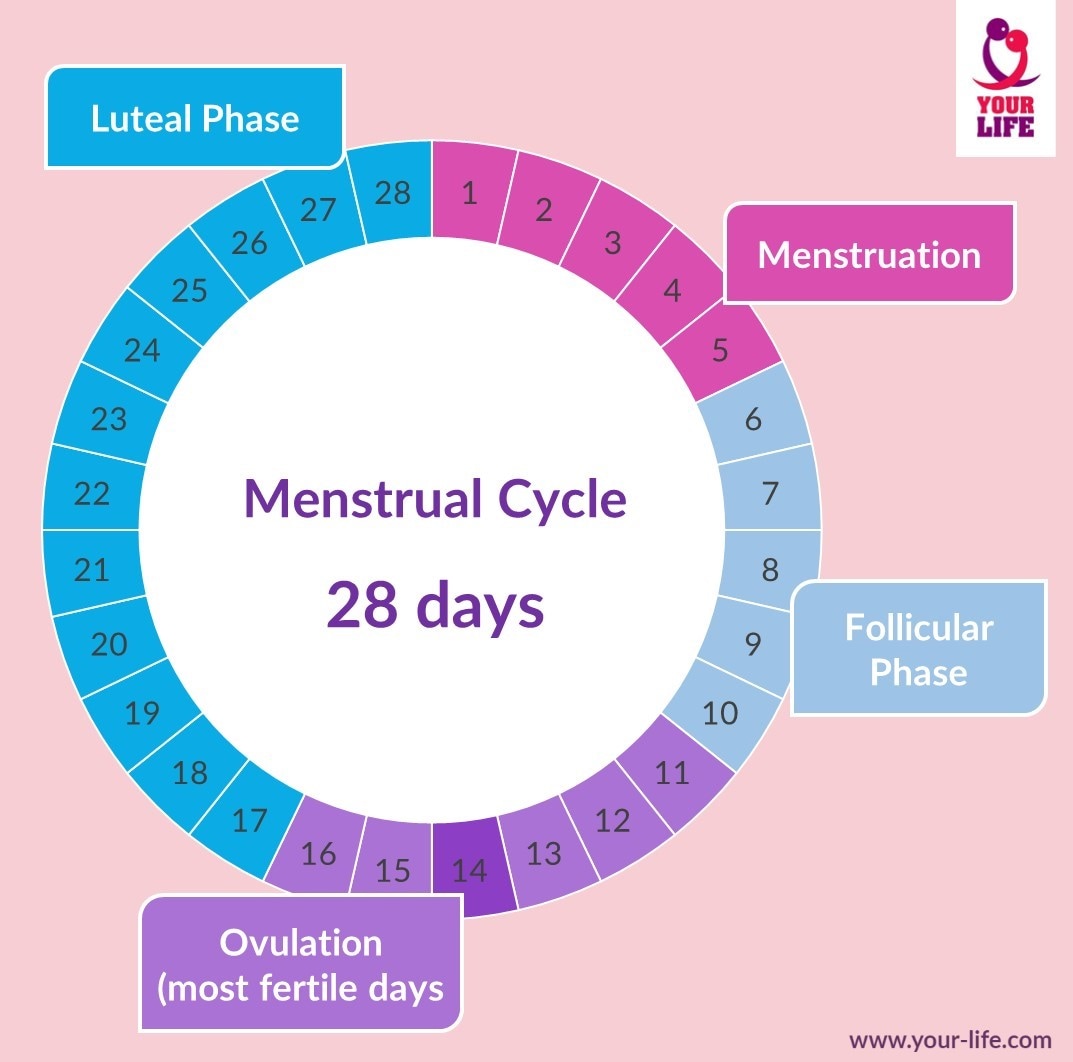Natural Family Planning WHEN and HOW?
Natural Family Planning (also called Fertility Awareness Methods) is the technique of working out exactly what stage of your menstrual cycle you are in, and at which stages you are not fertile and having unprotected sex at those times only. Natural Family Planning requires you to observe fertility signs. There are several different methods such as tracking the days of your menstrual cycle, paying attention to body temperature fluctuations, and keeping a very close eye on changes to your cervical mucus.

Each technique is complex and relies on a deep and intimate knowledge of your own menstrual cycle. The techniques base themselves on the fact that there are specific days during each menstrual cycle, the days before and shortly after ovulation, where your are most likely to get pregnant and others where you are less likely, which is where the intimate knowledge and the calculations come in.
There are several more techniques, but they can all be thrown by slight changes to your cycle, a miscalculation, spontaneous lifestyle resulting in non-regular sleeping time or a host of other variables. Natural family planning is definitely not a recommendation for the forgetful, the disorganized or the spontaneous.
If natural family planning interests you, it is advised to use a barrier method, e.g. diaphragm, cervical cap or condom, or not have sex on the days you are fertile. This may mean that you need to abstain from sex or use another method at least on 12-18 days of your menstrual cycle. If you want to get pregnant, natural family planning can help you to know which days you should be having sex to become pregnant.
Tabs header
Natural Family Planning PROS:
- It can be used when breastfeeding
- It’s hormone free
- No side effects
- If you want to get pregnant, it can help you to know on which days you should have sex
Natural Family Planning CONS:
- Using it can take practice
- It requires keeping track of your menstruation cycle all the time
- It requires a very regular lifestyle
- It’s open to mistakes
- It can interfere with spontaneity
- It’s unreliable as it does not take variations in your cycle into account
- The timing of fertility is highly unpredictable even if your menstrual cycle is regular
- Does not protect against HIV infection (AIDS) and other sexually transmitted infections (STIs)
All important details about Natural Family Planning
There are several different methods of natural family planning you can use to track your menstrual cycle. All of them require you to keep track of your menstrual cycle all the time. They are not for those of us who are forgetful, disorganized or like to be spontaneous. Even if you have a regular lifestyle and menstrual cycle, the timing of fertility can be difficult to pin down exactly. Ideally, two or more natural family planning methods should be combined for better accuracy and protection.
- Calendar based methods
Record your period days or use your cycle history, to predict your non-fertile days. For example, using the Standard Days Method or Calendar Rhythm Method. Find more information about these methods and how to work with them in the following resources: Standard Days Method, Calendar Rhythm Method.
During all other days of your cycle use other forms of contraception or abstain from sex to prevent pregnancy.
Read the FAQ: How do I know when I’m ovulating? Symptom-based methods
Basal Body Temperature (BBT): Measure your temperature every morning using a very accurate digital thermometer, or one specific for natural family planning. Your temperature will slightly rise (0.2–0.5 degrees Celsius) after your ovulation. You'll be most fertile during the two to three days before your temperature rises. Tracking your temperature every day will help you spot your non-fertile days.
Cervical secretions:
Monitor changes in the look and feel of your cervical mucous. Hormonal changes during the reproductive cycle change the amount and consistency of your cervical mucous. This can help you spot your non-fertile days.
Examples for these methods are the TwoDay Method and Billings Ovulation Method. To find out how exactly those methods work, visit the following resource: Cervical Mucus Methods.

Cervical mucus consistency:
- Scant but sticky & thick -> you are not ovulating yet
- Creamy -> ovulation may be coming, but not just yet
- Abundant, clear, stretchy, wet and slippery -> ovulation is close, you are highly fertile
- Multiple indicators
The most effective natural family planning strategy is monitoring several signs and symptoms at the same time, instead of just one.
For example, combining the basal body temperature method with the monitoring of cervical secretions is called the symptothermal method.
Questions & Answers about Natural Family Planning
FREQUENTLY ASKED QUESTIONS
Most people can use natural family planning. However, certain situations can affect fertility signs and you might want to consider a different method if:
- there could be a health risk to the baby if you got pregnant
- you're having irregular periods
- you have a short or long-term condition affecting your fertility signs, such as a sexually transmitted infection (STI) or pelvic inflammatory disease
- you're taking a medication that disrupts production of cervical mucus (ask your doctor or a pharmacist if you're not sure)
- you've recently stopped taking hormonal contraception
- you've recently had a miscarriage or abortion
- you've recently given birth and are breastfeeding
- you regularly travel through different time zones
- you're not able to take your temperature in the recommended way
- you're a heavy drinker
Source: National Health Service
For many couples, these methods provide reliable information about the most fertile days. Or in other words, when the chances of pregnancy are highest. If the couple avoids vaginal sex or uses external (male) condoms or internal (female) condoms, a cervical cap or diaphragm on the days where there is a risk of pregnancy, natural family planning methods can be effective. Using pull-out or spermicides during the fertile time is less effective and not recommended.
The number of days varies based on the woman's cycle length. The average number of days a woman would be considered fertile and would need to abstain or use another method varies between 12 to 18 days dependent on the fertility awareness tracking methodology. To avoid an unintended pregnancy, you must use another contraceptive method, such as condoms, during your fertile days.
Ovulation varies depending on the length of your menstrual cycle, which can range from 21 days up to 35 days.
Let’s have a look at two examples:
Ovulation happens about 14 days before your menstruation starts. That means:
- If your average menstrual cycle for example is 28 days, you ovulate around day 14, and your most fertile days are days 12, 13 and 14.
- If your average menstrual cycle is 35 days ovulation happens around day 21 and your most fertile days are days 19, 20 and 21. How to count your cycle? The first day of your menstruation is the beginning of a new cycle, hence day 1.
If you do not want to become pregnant, using contraception also on the other days of your cycle is very important because chances of pregnancy may be lower but not zero. Because the lifespan of sperm is unpredictable and can last up to 5 days, unprotected sex can lead to pregnancy from the first day of your menstruation.

Yes - during monthly bleeding the chances of pregnancy are low but not zero. Bleeding itself does not prevent pregnancy, and it does not promote pregnancy, either. In the first several days of monthly bleeding, the chances of pregnancy are lowest. As the days pass, the chances of pregnancy increase, whether or not she is still bleeding. The risk of pregnancy rises until ovulation. The day after ovulation the chances of pregnancy begin to drop steadily. Some fertility awareness methods that depend on cervical secretions advise avoiding unprotected sex during monthly bleeding because cervical secretions cannot be detected during bleeding and there is a small risk of ovulation at this time.


































